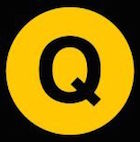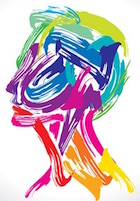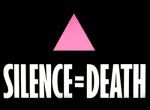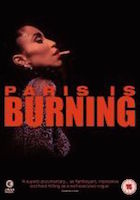|
WGS 201 Download the course policies and syllabus (PDF).
"You think your pain and your heartbreak are unprecedented in the history of the world, but then you read. It was
books that taught me that the things that tormented me most were the very things that connected me with all the
people who were alive, or who had ever been alive."
|
DRAWING INSPIRATION from Raymond William's influential Keywords: A Vocabulary of Culture and Society and Bruce Burgett and Glenn Hendler's Keywords for American Cultural Studies, this class will identify and explore some of the key concepts, moves, and key terms of the interdisciplinary fields that make up lesbian, gay, bisexual, transgender, and queer studies. Topics, themes, methods, and lines of inquiry will include:
• histories of sexuality and sexual identity; THROUGH THE LENSES of scholarship, media, and popular culture, our class will trace and trouble theoretical and everyday understandings of LGBT and Q terms, figures, bodies, and experiences. Williams argued, "I have emphasized this process of the development of Keywords because it seems to me to indicate its dimension and purpose. It is not a dictionary or glossary of a particular academic subject. It is not a series of footnotes to dictionary histories or definitions of a number of words. It is, rather, the record of an inquiry into a vocabulary: a shared body of words and meanings." This class therefore is all about reading, thinking, writing, and contributing to LGBT studies' shared body of words, ideas, and theories. A REQUIREMENT for this class is a well-developed curiosity and a willingness to explore and interrogate interdisciplinary lines of inquiry. Our class will be organized around an intensive survey of readings and texts. Specifically, our course goals include:
• We will develop and demonstrate a familiarity with a range of texts, terms, and theories of queer studies.
WE WILL spend the quarter asking and addressing difficult, challenging,
and sometimes discomforting ideas, questions, and topics, focusing on different identities, bodies, histories,
desires, experiences, and even struggles and violences. Whether on the page, screen, on campus, or in the
community, we will explore and engage multiple perspectives, levels of familiarity with the material, and
heady and heartfelt responses. In other words, our class will be a safe, respectful, but not necessarily
comfortable space. While pushing boundaries and comfort zones are essential to critical thinking, making
connections, and intellectual and personal freedom, see me with concerns and queries, for reasonable
accommodations, and for further resources on campus.
|
"You have some queer friends, Dorothy...The queerness doesn't matter, so long as they're friends."
"We all came into this world naked. The rest is all drag."
"Where there is power, there is resistance."
Required Course Texts & Materials
• WGS 201 Course Reader Parts I & II (available via Campus Copy)
|
|
Course Requirements
Presentation (10%) Download the course policies and syllabus (PDF).
|
Requirements & GradingYour grade should not be the sole exigence or motivation for this class. It is the hope of the course that you walk away from our class with something more. Find some pleasure and some edification and some knowledge from this class (or any class really) and success is usually not far behind. With that in mind, your grade will be a reflection of engagement, effort, close reading, critical thinking, writing, and participation. Critical Contexts & Questions Presentation (10%) You will be a required to sign up for an oral presentation in small groups. For your presentation, you will read your assigned text for the week, summarize its main arguments, connect the text to a critical example, generate a critical question or two, and get class discussion started for the day. A short single-spaced half-sheet or 1-page handout copied for the whole class is encouraged. Presentations are no more than 10 minutes, may include media, and each presenter must have a substantive speaking part. In-Class Quizzes (20%) There will be six or more in-class quizzes at various times during the quarter. These quizzes serve as a review of the week's main ideas, terms, texts, and readings. These quizzes will include identifications, fill-in-the-blanks, definitions, and short answers. Precis Papers (30%) The majority of the writing you will do for this class is in the form of short, analytical precis papers. These single-spaced, one-page writings serve as close readings of, analytical summaries of, and articulations of the main arguments and ideas of one of the week's theoretical texts. These responses are not personal reactions or applications of theory and will be graded on clarity, focus, coherence, and your ability to formulate concise detail. You will be required to generate a précis paper approximately every other week for a total of 5. See the precis paper prompt for more details. Precis papers are turned in each week via the course Canvas. Identity Log (10%) Over the course of the quarter, you will keep and maintain a weekly "identity log" or "iLog," recording, detailing, and thinking about your own identities and identifications, particularly those mediated by and through the course's keywords. Your "iLog" will function as a kind of identity workbook, an analytical and metacognitive journal, connecting your observations and experiences to the texts, theories, and ideas of the class. Periodically, you will be given specific prompts or experiments, and you will share your logs in class and via the class Canvas. These weekly logs will be evaluated on completion and your critical, analytical engagement with the prompt. Participation and Preparedness (30%) Preparedness and participation forms a large component of your final grade. It is essential that you prepare for class and regularly participate online. Moreover, negative participation will hurt your participation grade. Participation is determined by 1) your respectful presence in the class forums and interactions with me and others, 2) your willingness to discuss, comment, and ask questions, 3) your preparation for class, which includes having the required materials on hand and doing all of the assigned reading and watching for class, 4) your engagement in presentations, group work, and events, and 5) your care and daily use of the class Canvas--henceforth called the "class blog"--bookmark the address, check and comment regularly, think of the blog as an extension of class: |
"You must write, and read, as if your life depended on it."
"An idea that is not dangerous is unworthy of being called an idea at all."
"Imagination is more important than knowledge."
"I see fashion as a proclamation or manifestation of identity, so, as long as identities are important, fashion will
continue to be important. The link between fashion and identity begins to get real interesting, however, in the case of
people who don't fall clearly into a culturally-recognized identity."
|
|
|
Attendance
Attendance is required. If you are absent, you miss the explanation of an assignment, the discussion of a reading, the
chance to participate, and overall, the class as a community of learning. Also, you are expected to be in class on time.
Class will start immediately at the appointed time. In the first minutes of class I may make important announcements,
establish the agenda for the day, begin immediately with an important lesson, or field questions. If you come in after
we start class, even by only a few minutes, you are late and will be mark as such. Chronic or conspicuous attendance
problems will negatively affect your overall participation grade for the class. Moreover, absences for more than 9
class sessions (50% of class time or more) will result in a failing grade regardless of reason. There are no excused
or unexcused absences. If you know you are going to or must miss class, please let me know (via email) as soon as
possible and make any necessary arrangements. When you do miss class, always find another student to get class notes
or see me during office hours in order to make up missed work in a timely manner. You are always responsible for all
material covered during your absence.
|
|
|
MLA Paper Formatting 1) 1" margins top, bottom, left, and right on each page. 2) Single-spaced block header on the first page only with your name, date, course, my name:
Student Name 3) Appropriate one line, unbolded title. 4) Print single-sided. Papers one page, single-spaced, standard paragraphing; no page numbers; no extra space between paragraphs. 5) Standard Times Roman Font, 12 point only. 6) Correct MLA citation and bibliographic format. A paper turned in without a bibliography automatically fails and will be returned with no comments.
|
Assignment FormatAll papers must be typed or produced on a word processor. All documents should be saved in Microsoft Word format; if you do not have access to Word, then save your documents in PDF or Rich Text Format (RTF). All papers must follow the manuscript format outlined by the assignment. All papers must use MLA citation and documentation conventions. All papers must be neatly printed (in black), single-sided, stapled in the top, left-hand corner if necessary, and not be three-hole punched. Papers that do not follow these format guidelines will not be accepted. They will be returned unread to you. Papers will be regarded as late until they are resubmitted in the proper format. Response Papers and the Critical Review have different manuscript guidelines detailed by their assignment prompts. Always make a backup copy of every paper you turn in, lest you be one of the unhappy people whose paper is eaten by the computer. You may even want to take the precaution of e-mailing your paper to yourself as an attachment at least a couple of times during the drafting process and certainly BEFORE you exit the document for the last time and leave the computer. This way, even if you lose your flash drive or your paper gets mysteriously erased, you still have a copy in your e-mail files.
Evaluation RubricOver the course of the semester, your assignments will receive feedback and comments that will identify what you are doing well and what still needs improvement. Your grades assess your fulfillment of the assignment, the quality of work, detail, analysis, and argumentation, overall effort, and finally, style, polish, and risk taking. Consider the following evaluation rubric as signposts or a kind of legend to your progress and evaluation:
• Outstanding (A/A+): Offers a very highly proficient, even memorable demonstration
of the trait(s) associated with the course or assignment goal(s), including some
appropriate risk-taking and/or creativity. |
Late Assignments All assignments must be done completely and turned in on time. Late assignments will be penalized a letter grade for every day that they are late. So, if your essay is late by one day and you received a B- for your work, then your final grade would be a C-. Moreover, I will not comment on late work. However, you still need to complete late work or you will receive a zero. If you miss the due date of a paper, you must notify me and make arrangements to get the paper to me as soon as possible. Unless previously arranged, I DO NOT accept assignments via email. Remember that a paper has not been officially handed in until it is in my hands. Never turning anything in late is always the best policy. |
|
Contact Ed
Office: Download the course policies and syllabus.
|
Finding HelpMy office and office hours are listed in the left sidebar, as well as the Graduate Teaching Fellow's information. We are available during the listed time and by appointment to help you. I encourage you to come see me or the GTF early in the quarter even if it is just to talk about the class, about the assignments, or about school in general. I may ask you to meet with me when I think a conference would be useful. Our offices are located on the third floor of Hendricks Hall (southeast of the EMU). See http://map.uoregon.edu/.
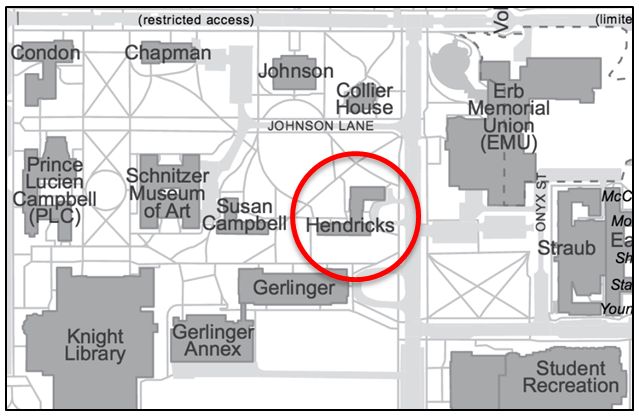
I am also available electronically by email and the course blog. Email and the blog are the best means of contacting me. I will do my best to answer your emails and blog posts, usually within twenty-four hours. If there is an emergency and you need to reach me, please contact the main English office in Sitterly 108. Furthermore, when time permits, I will supplement my office hours with virtual hours via AOL Instant Messenger or Google Talk (nickname: EDagogy); if I am logged in, during reasonable hours, you are more than welcome to discuss the class or ask questions. Please, when you initiate an IM conversation for the first time, please identify yourself to me; also, be patient because my responses may not be immediate. You can find additional writing and academic help at the Teaching and Learning Center on campus, a good resource for this class and other classes. The TLC is located in 68 Prince Lucien Campbell (PLC) Hall and offers a variety of services including help with reading, papers, brainstorming ideas, and research. See http://tlc.uoregon.edu/ to make an appointment and for more information.
Further resources, both on- and off-campus can be found on the Links page of the course website:
http://www.edmondchang.com/courses/201/links.html.
|
Learning (With) TechnologyUnless you have an official accommodation, the use of technology in our classroom is a privilege, not a right. Mobile devices like phones, media players, and cameras should be off and put away. Computers and tablets should be used for note-taking, in-class work, and readings only. Print is generally preferred for course texts and readings, but full-size e-versions are acceptable provided the student is able to readily highlight, annotate, and index. Finally, be conscientious and respectful in the use of the course website and social media and post no material from class to the internet or non-class sites without explicit permission from the instructor and the class. Keep in mind these three rules: 1) Use the Right Tool for the situation and the task--keep it simple and elegant, 2) Practice Best Practices--it must improve or enhance your learning, 3) Be a Good Neighbor--it cannot distract or detract from others' learning. Inappropriate use and abuse of technology in class will result in the taking away of technology privileges for the offending student and/or class as a whole.
|
|
|
Academic DishonestyAll students are required to uphold the highest academic standards. Plagiarism, or academic dishonesty, is presenting someone else's ideas or writing as your own. In your writing for this class, you are encouraged to refer to other people's thoughts and writing--as long as you cite them. Many students do not have a clear understanding of what constitutes plagiarism, so feel free to ask questions at any time. For our class, plagiarism includes:
• a student failing to cite sources of ideas If you have any doubt about how to cite or acknowledge another's writing, please talk to me. Any plagiarism or academic dishonesty will result in failure of this course. It is always better to be safe than sorry. Please review the University of Oregon's Guidelines for Plagiarism at http://libweb.uoregon.edu/guides/plagiarism/students/.
AccommodationsPlease let me know in the first week of class if you require academic accommodations based on a disability registered with Accessible Education Services. The University of Oregon is an inclusive learning environment. For more information, contact the Accessible Education Center (formerly Disability Services) in 164 Oregon Hall at 541-346-1155 or http://aec.uoregon.edu/.
Harassment, Discrimination, and Sexual Misconduct
The University of Oregon is committed to ensuring that all students have access to a quality learning experience
and the opportunity to pursue their academic goals in a safe, supportive, and inclusive learning environment. Any
form of sexual harassment, sexual assault, relationship violence, and gender-based stalking and bullying is contrary
to the community values of the institution. Title IX makes it clear that violence and harassment based on sex and
gender is a Civil Rights offense subject to the same kinds of accountability and the same kinds of support applied
to offenses against other protected categories such as race, national origin, and so on. As your instructor, I have
a mandatory reporting responsibility and am required by law to share with the University any information regarding
sexual misconduct or information about a crime that may have occurred on campus. For more information about policies
and resources or confidential reporting options, see the Office of Affirmative Action & Equal Opportunity:
http://aaeo.uoregon.edu/sexual-harassment-assault
or the Dean of Students' page on Student Conduct & Community Standards:
https://uodos.uoregon.edu/StudentConductandCommunityStandards.aspx.
|
"Do work that matters. Vale la pena."
"Come to me now and loosen me from blunt agony. / Labor and fill my heart with fire. / Stand by me and be my ally." --Sappho, The Complete Poems
"If a bullet should enter my brain, let that bullet destroy every closet door."
"If one is lucky, a solitary fantasy can totally transform one million realities."
|
|
|
© 2016-17 Edmond Chang. All original material. All rights reserved. Contact the webmaster of this site. These pages are best viewed with Mozilla Firefox or Internet Explorer. Open your browser to the largest viewable area. These pages are hosted by ED(MOND)CHANG(ED)AGOGY, the academic, professional, and creative website of Edmond Y. Chang. |
|











